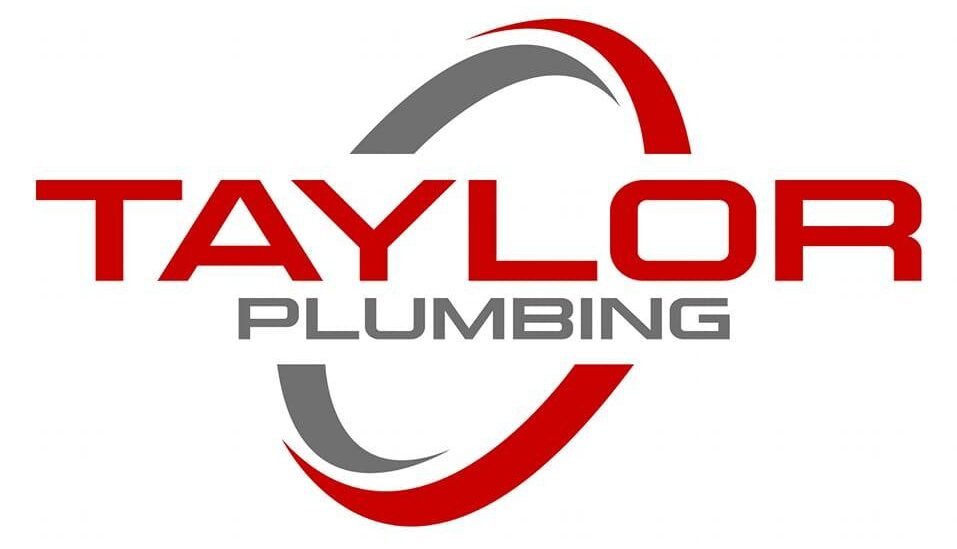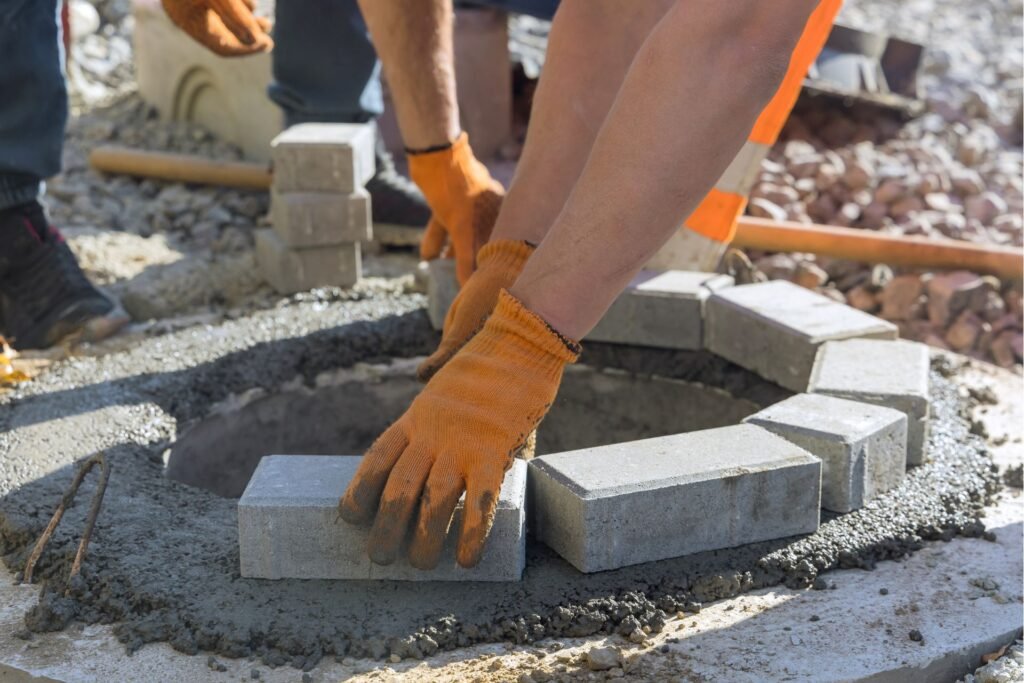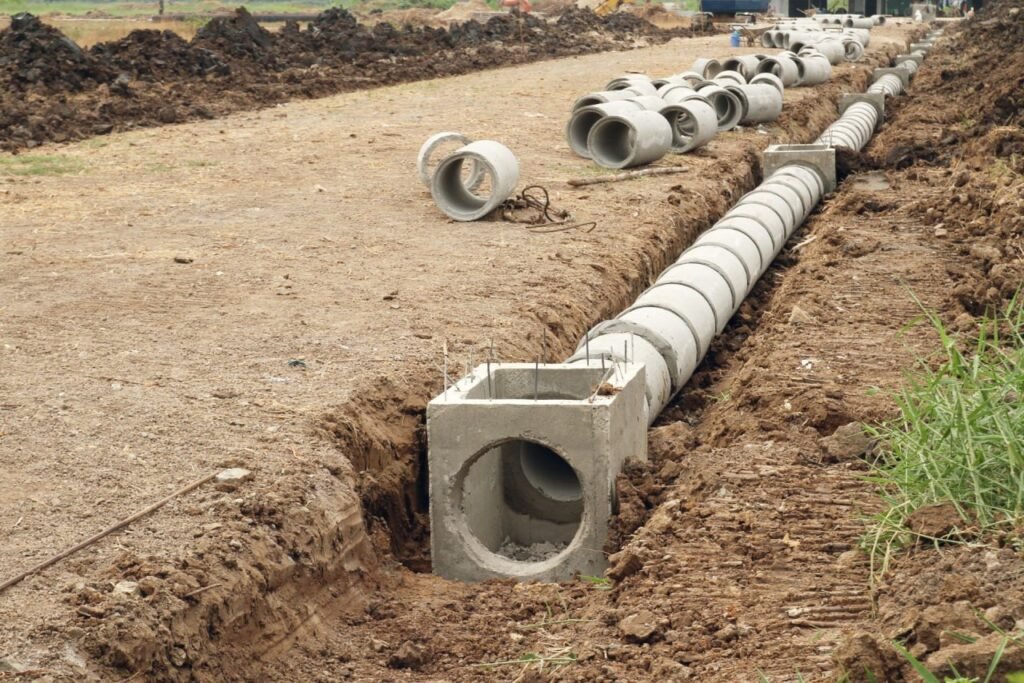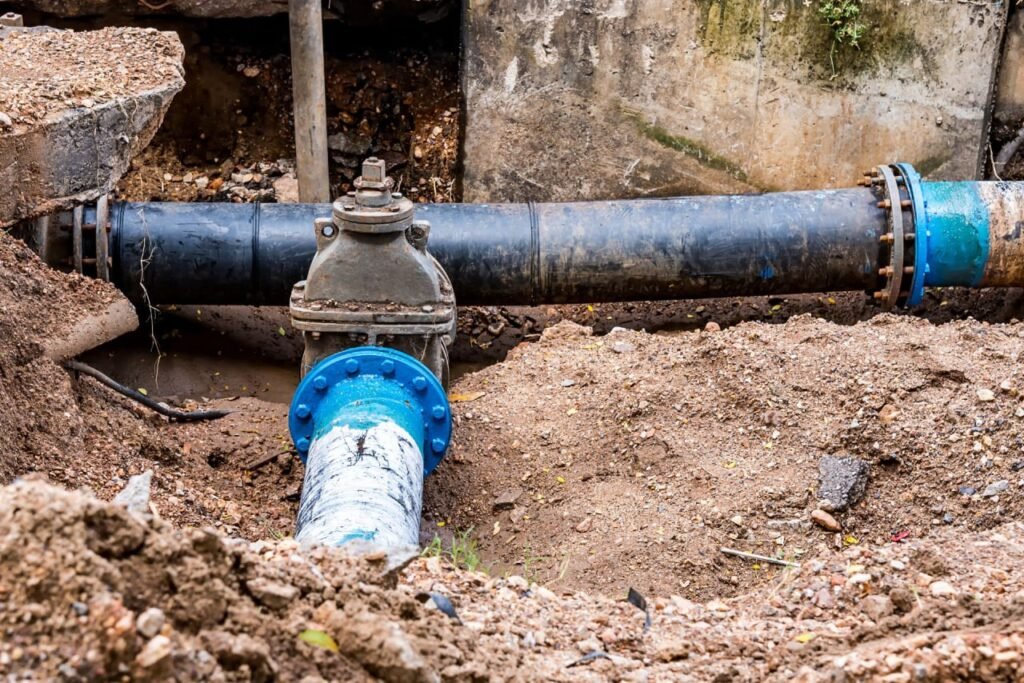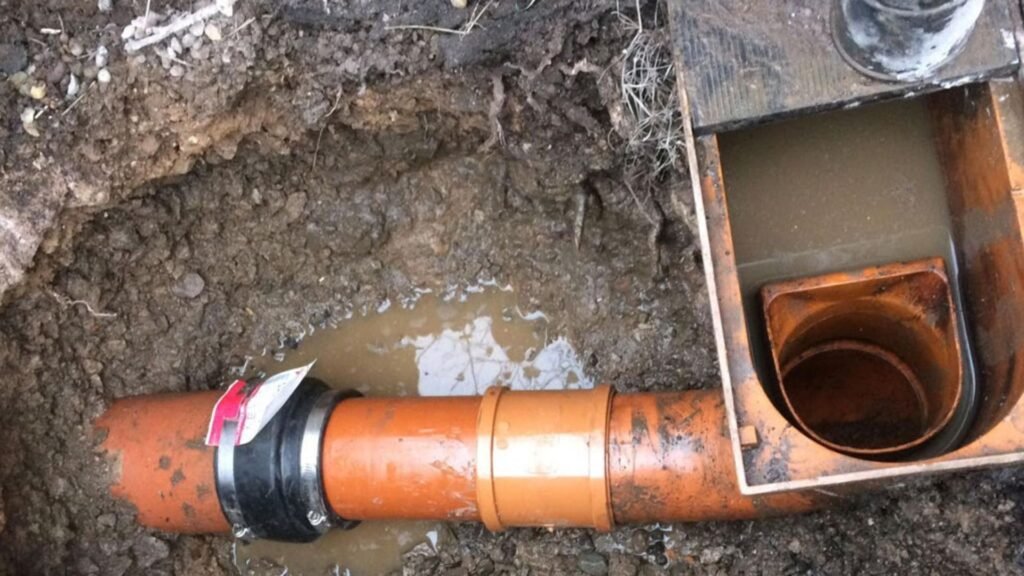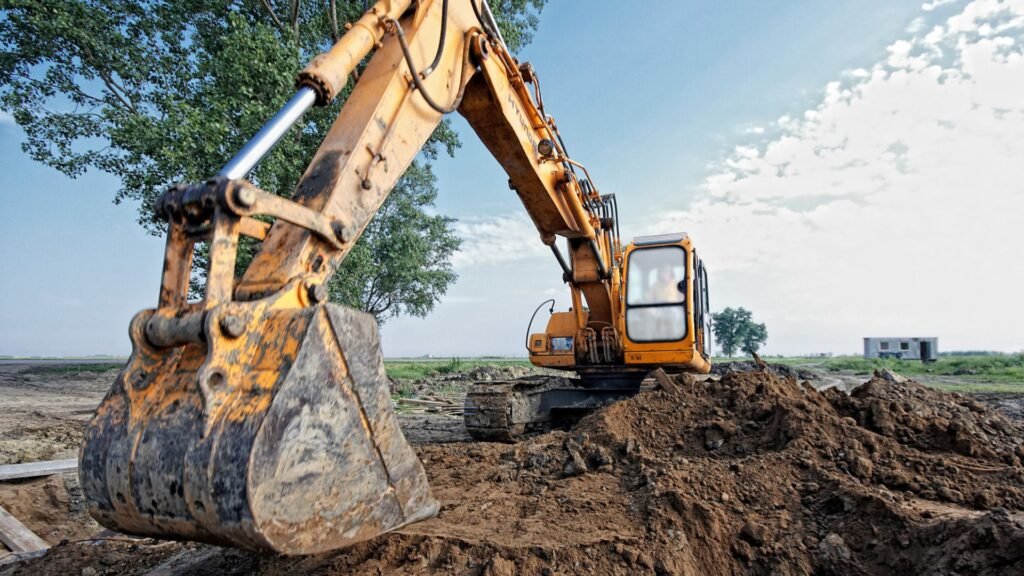Welcome to our comprehensive guide on digger and operator hire rates in New Zealand. Whether you’re planning a residential landscaping project, a commercial construction venture, or public infrastructure work, understanding the costs associated with hiring a digger and operator is crucial for effective budgeting and project management. In this post, we’ll delve into the various factors that influence hire rates, including the type of digger, operator experience, duration of hire, and location. We’ll also provide insights into typical hire rates across different regions, tips for getting the best rates, and what hidden costs to watch out for. By the end of this guide, you’ll be well-equipped with the knowledge to make informed decisions about digger and operator hire, ensuring your project runs smoothly and efficiently.
On average, digger and operator hire rates in New Zealand range from $50 to $150 per hour, depending on the size and type of the digger, the experience level of the operator, and the project’s location. Mini diggers typically cost less, while larger excavators and specialized equipment can be more expensive.
- Understanding Digger And Operator Hire
- Factors Influencing Hire Rates
- Typical Hire Rates In NZ
- How To Get The Best Rates
- Hidden Costs To Watch Out For
- Benefits Of Hiring A Digger And Operator
- Case Studies And Examples
- DIY Vs. Professional Hire
- Tips For A Successful Hire Experience
- FAQs: About The Digger And Operator Hire Rates In NZ
- Conclusion
Understanding Digger And Operator Hire
Definition of Digger and Operator Hire
Digger and operator hire refers to the process of renting excavation equipment along with a skilled professional to operate it. This service is crucial for various types of construction and landscaping projects. The equipment, commonly known as a digger or excavator, is designed to handle a range of tasks such as digging trenches, moving large objects, and clearing debris. The operator, typically trained and certified, ensures the machinery is used safely and efficiently, maximizing productivity and minimizing the risk of accidents.
Common Projects Requiring Digger and Operator Hire
1. Residential Construction
Residential construction often requires excavation services for building foundations, installing utilities, and landscaping. Diggers are used to prepare the ground, ensuring a solid base for the construction. Tasks include trenching for plumbing and electrical lines, grading the land, and digging out spaces for basements or swimming pools. The operator’s expertise ensures that the work is done accurately, adhering to the project’s specifications and local regulations.
2. Landscaping
Landscaping projects, whether for residential gardens or large commercial spaces, frequently need diggers to shape the terrain. This can involve tasks like creating terraces, building retaining walls, and installing ponds or water features. The precision of a professional operator is essential in achieving the desired landscape design while maintaining the integrity of the surrounding environment.
3. Demolition
Demolition projects require powerful machinery to dismantle structures safely and efficiently. Diggers equipped with specialized attachments can break down buildings, remove debris, and clear sites for future development. An experienced operator can navigate the complexities of demolition, ensuring the process is conducted swiftly while minimizing the impact on nearby structures and the environment.
4. Road Construction and Maintenance
In road construction and maintenance, diggers are indispensable for tasks such as digging out foundations, laying pipes, and handling materials. These projects often occur in challenging environments, requiring operators who can manage the equipment in tight spaces and under varying conditions. Their skills contribute to building durable roadways and maintaining infrastructure critical to transportation networks.
Hiring a digger and operator offers numerous benefits, including access to specialized machinery and professional expertise. This combination ensures that projects are completed efficiently, safely, and to a high standard. Whether you’re embarking on a new construction project, enhancing your landscape, or maintaining essential infrastructure, digger and operator hire is a vital service that can help you achieve your goals.

Factors Influencing Hire Rates
When it comes to hiring diggers and operators in New Zealand, several key factors can significantly influence the overall cost. Understanding these factors can help you make an informed decision and ensure you get the best value for your money.
Type of Digger
The type of digger you need will be one of the primary determinants of the hire rate. Different projects require different types of diggers, and their costs can vary accordingly.
- Mini Diggers: These compact machines are ideal for small-scale projects such as garden landscaping or minor excavation works. They are easier to transport and operate, making them a cost-effective choice for less demanding tasks.
- Standard Diggers: Suitable for medium-scale projects, standard diggers offer a balance between power and maneuverability. They are commonly used for residential construction and moderate excavation tasks.
- Large Excavators: For large-scale construction or industrial projects, large excavators are essential. These powerful machines can handle heavy-duty tasks but come with higher hire rates due to their size and capabilities.
Operator Experience and Qualifications
The expertise and qualifications of the operator can greatly impact the hire rates. Skilled operators not only ensure efficient operation but also enhance safety on the job site.
- Importance of Skilled Operators: Hiring a skilled operator can make a significant difference in the quality and efficiency of the work. Experienced operators can complete tasks more quickly and accurately, potentially saving you money in the long run.
- Certification and Training Requirements in NZ: In New Zealand, operators must meet specific certification and training requirements to operate diggers. Ensuring that your operator has the necessary qualifications can provide peace of mind and compliance with local regulations.
Duration of Hire
The length of time you need to hire the digger and operator will also affect the overall cost.
- Hourly Rates vs. Daily Rates: Most hire companies offer both hourly and daily rates. Hourly rates can be more cost-effective for short-term projects, while daily rates may provide better value for longer tasks.
- Long-term Hire Discounts: Many hire companies offer discounts for long-term hires. If your project is expected to take several days or weeks, it’s worth negotiating a better rate for an extended hire period.
Location and Accessibility
Where your project is located and how easily the site can be accessed can also influence the hire rates.
- Urban vs. Rural Rates: Hire rates can vary based on whether your project is in an urban or rural area. Urban areas may have higher rates due to increased demand and logistical challenges, while rural areas might have lower rates but higher transportation costs.
- Transportation and Site Access Considerations: The ease of transporting the digger to your site and accessing the work area can affect the overall cost. Difficult-to-reach sites may incur additional charges for transportation and setup.
Additional Services and Equipment
Additional services and equipment can also add to the cost of hiring a digger and operator.
- Attachments (e.g., Augers, Buckets, Breakers): Depending on the nature of your project, you may need additional attachments such as augers, buckets, or breakers. These can increase the hire rate but are necessary for specific tasks.
- Fuel and Maintenance Costs: Fuel consumption and maintenance are ongoing costs that need to be considered. Some hire companies include these in the hire rate, while others may charge extra.
By understanding these factors, you can better anticipate the costs associated with hiring a digger and operator in New Zealand. Making informed decisions and negotiating where possible can help you manage your budget effectively while ensuring your project runs smoothly.

Typical Hire Rates In NZ
When planning a construction or landscaping project, understanding the hire rates for diggers is crucial for budgeting effectively. In New Zealand, the cost of hiring diggers varies based on the size of the machinery and the duration of the hire. Here’s a comprehensive look at the typical hire rates for different types of diggers.
Mini Diggers
Mini diggers, also known as mini excavators, are perfect for small-scale projects like garden landscaping, minor trenching, and light demolition work. They are favored for their compact size and versatility.
- Average Hourly Rate: Hiring a mini digger typically costs around $50 to $80 per hour. This rate often includes the operator’s fee.
- Average Daily Rate: For daily hire, you can expect to pay between $200 and $300. Daily rates may be more cost-effective for longer projects.
- Average Weekly Rate: Weekly hire rates range from $800 to $1,200. Hiring for a week or more can offer significant savings compared to daily rates.
Standard Diggers
Standard diggers are medium-sized machines suitable for more extensive construction tasks, including foundation digging, larger trenching projects, and more substantial demolition work.
- Average Hourly Rate: The hourly cost for a standard digger is usually between $90 and $120. This rate often includes the operator.
- Average Daily Rate: Daily hire rates for standard diggers range from $350 to $450. These rates can vary depending on the digger’s specifications and the hiring company.
- Average Weekly Rate: Weekly rates typically fall between $1,500 and $2,000. Hiring for a week can be more economical for longer-term projects.
Large Excavators
Large excavators are designed for heavy-duty tasks such as major construction projects, large-scale trenching, and extensive excavation work. They offer powerful performance and can handle significant loads.
- Average Hourly Rate: For large excavators, the hourly hire rate is generally between $150 and $200. This rate includes the operator’s fee.
- Average Daily Rate: The cost of hiring a large excavator daily ranges from $600 to $800. The higher rates reflect the increased capability and size of the machinery.
- Average Weekly Rate: Weekly hire rates are typically between $2,500 and $3,500. For prolonged projects, weekly hiring can provide substantial cost savings.
Comparison of Rates Across Different Regions in NZ
The hire rates for diggers can vary significantly across different regions in New Zealand. Factors influencing these variations include local demand, availability of machinery, and regional economic conditions.
- Auckland: Being the largest city with a high demand for construction services, hire rates in Auckland tend to be on the higher end. For instance, mini digger hire might cost around $80 per hour, while large excavators can go up to $200 per hour.
- Wellington: In the capital, rates are slightly lower than in Auckland but still relatively high due to significant construction activities. Mini diggers may be around $70 per hour, and large excavators about $180 per hour.
- Christchurch: Post-earthquake reconstruction efforts have kept rates competitive. Mini digger hire could be around $60 per hour, with large excavators at approximately $160 per hour.
- Rural Areas: In less populated regions, rates are generally lower due to reduced demand. Mini digger hire might be around $50 per hour, and large excavators around $150 per hour.
Understanding these typical hire rates and regional variations can help you plan your project budget more effectively. Always consider obtaining multiple quotes from different hire companies to ensure you get the best rate for your needs.

How To Get The Best Rates
When hiring diggers and operators in New Zealand, securing the best rates involves a strategic approach. Here are some key steps to follow:
Requesting Quotes
How to Prepare a Detailed Request
To get accurate quotes, prepare a comprehensive request detailing your project requirements. Include specifics such as the type and size of the digger, the duration of hire, the nature of the work, and any site-specific conditions. Providing clear and detailed information helps companies give precise quotes and avoids unexpected costs later.
Questions to Ask Potential Hire Companies
When reaching out to hire companies, ask essential questions to gauge their suitability. Some important questions include:
- What is the availability of the equipment?
- Are there any additional charges for delivery and pickup?
- What is included in the hourly or daily rates?
- Do they provide an operator with the hire, or is it equipment only?
- What is their policy on breakdowns or malfunctions?
Asking these questions ensures you understand what each quote includes and can compare them accurately.
Comparing Multiple Providers
What to Look for in Quotes
When comparing quotes from different providers, look beyond the price. Evaluate what each quote covers, including any additional services or hidden costs. Consider the condition and reliability of the equipment, the expertise of the operators, and the company’s policies on maintenance and support.
Importance of Reputation and Reviews
A company’s reputation is a strong indicator of its reliability. Check online reviews and testimonials from previous clients. Positive feedback and high ratings suggest consistent quality and customer satisfaction. Conversely, a lack of reviews or negative comments may be a red flag. It’s often worth paying a slightly higher rate for a company with a solid reputation.
Negotiating Terms
Tips for Negotiating Better Rates
Negotiation is a crucial part of securing the best rates. Start by understanding the average market rates for the services you need. Use this information to negotiate confidently. Be polite but firm in your discussions, and don’t hesitate to mention quotes from other providers as leverage. Sometimes, companies are willing to match or beat competitors’ prices to secure your business.
Understanding Contract Terms and Conditions
Before finalizing any agreement, carefully review the contract terms and conditions. Ensure you understand the payment terms, cancellation policies, and any clauses related to equipment damage or breakdowns. Clarify any ambiguities with the provider to avoid misunderstandings. A well-defined contract protects both parties and ensures a smooth working relationship.
By following these steps, you can secure the best rates for digger and operator hire, ensuring your project stays on budget without compromising on quality.

Hidden Costs To Watch Out For
When planning any project, especially those involving construction or large-scale home improvements, it’s crucial to be aware of hidden costs that can quickly add up. These costs often catch people off guard, leading to budget overruns and unexpected expenses. Here, we’ll break down some of the most common hidden costs and provide tips on how to manage them effectively.
Travel and Delivery Fees
One of the first hidden costs to consider is travel and delivery fees. These can vary significantly depending on the distance between the supplier and your project site.
How Distance Affects Costs
The further away your supplier or contractor is from your project location, the higher the travel and delivery fees you are likely to incur. This is because suppliers charge more for longer distances to cover the additional fuel and labor costs.
Ways to Minimize Transportation Charges
To minimize these costs, consider sourcing materials and hiring contractors that are located closer to your project site. This not only reduces travel fees but can also speed up delivery times. Additionally, consolidating orders to minimize the number of deliveries can help keep costs down.
Damage and Insurance
Insurance and potential damage costs are another area where unexpected expenses can arise.
Common Insurance Requirements
Most construction projects require insurance to cover any potential damage to materials or property. It’s important to understand the specific insurance requirements for your project to ensure you’re adequately covered. This typically includes liability insurance, which protects against damage or injury caused during the project, and property insurance, which covers damage to the project itself.
Potential Damage Costs and How to Avoid Them
Damage to materials or existing structures can result in significant additional costs. To avoid this, ensure that all materials are handled carefully and stored properly. Using experienced and reputable contractors who take care of your property can also help minimize the risk of damage. Additionally, thoroughly reviewing your insurance policy and understanding what is and isn’t covered can prevent unpleasant surprises if damage does occur.
Fuel and Maintenance
The cost of fuel and maintenance for equipment and vehicles is another hidden expense that can impact your budget.
Responsibility for Fuel and Maintenance
When renting equipment or vehicles, it’s important to clarify who is responsible for fuel and maintenance costs. In many cases, the renter is responsible for these expenses, which can add up quickly, especially for large or fuel-inefficient equipment.
Calculating Additional Costs
To get a clear picture of your potential expenses, calculate the estimated fuel usage and maintenance needs for the duration of your project. This includes routine maintenance like oil changes and potential repairs for any breakdowns or malfunctions. Keeping equipment well-maintained can reduce the likelihood of costly repairs and downtime.
By being aware of these hidden costs and planning for them in advance, you can avoid budget overruns and ensure your project runs smoothly. Always ask suppliers and contractors about any additional fees and carefully review contracts and insurance policies. With careful planning and consideration, you can keep your project on track and within budget.

Benefits Of Hiring A Digger And Operator
When it comes to construction projects, hiring a digger and operator can make a significant difference. Here’s why opting for professional services is a smart move:
Efficiency and Expertise
One of the most compelling reasons to hire a digger and operator is the efficiency and expertise they bring to the table. Professional operators have extensive training and experience, allowing them to handle equipment with precision. This means they can complete tasks much faster than an inexperienced person, saving you both time and money.
Imagine trying to navigate a complex excavation task on your own—it would likely take much longer and could lead to costly mistakes. On the other hand, a seasoned operator knows exactly how to approach the job, ensuring it’s done correctly the first time. This efficiency not only speeds up your project but also reduces the likelihood of delays, helping you stick to your schedule and budget.
Safety Considerations
Safety is paramount in any construction project, and experienced digger operators are well-versed in the best safety practices. Operating heavy machinery comes with inherent risks, and without proper training, accidents are more likely to happen. Professional operators have a thorough understanding of how to manage these risks, minimizing the chances of on-site injuries.
Moreover, hiring a professional ensures compliance with safety regulations, protecting you from potential legal issues. They are trained to identify and avoid hazards, ensuring that the work environment is as safe as possible. This peace of mind is invaluable, as it allows you to focus on other aspects of your project without worrying about safety concerns.
Quality of Work
When you hire a professional digger and operator, you’re not just paying for labor—you’re investing in quality. Professionals take pride in their work, ensuring that each task is completed to the highest standards. This attention to detail results in a superior finish that can significantly enhance the overall quality of your project.
High-quality work is particularly important in construction, where precision is crucial. Whether it’s digging foundations, preparing sites, or any other excavation task, a professional operator’s skill ensures that the job is done right. This reduces the risk of future issues, such as structural problems or uneven surfaces, which can be costly to fix.
In summary, hiring a digger and operator offers numerous benefits, including efficiency, safety, and high-quality results. By leveraging the expertise of professional operators, you can ensure your project is completed on time, within budget, and to the highest standards.

Case Studies And Examples
Residential Landscaping Project
One of the standout residential landscaping projects we completed showcases our commitment to quality and efficiency. The project, which involved transforming a barren backyard into a lush, functional space, had a well-planned cost breakdown and timeline that highlights our transparent approach.
Cost Breakdown
- Design and Planning: $2,000 – This initial phase included consultations with the homeowner, creating detailed blueprints, and obtaining necessary permits.
- Materials: $5,000 – Quality materials such as sod, plants, pavers, and decorative elements were sourced from trusted suppliers.
- Labor: $4,000 – Our skilled team worked diligently over several days, ensuring every element was installed to perfection.
- Irrigation System: $1,500 – A state-of-the-art irrigation system was installed to maintain the health and beauty of the landscape.
- Miscellaneous Costs: $500 – This covered unexpected expenses and additional enhancements requested by the homeowner.
Timeline
- Week 1: Design and planning, including site surveys and finalizing blueprints.
- Week 2: Preparation of the site, which involved clearing existing vegetation and grading the land.
- Week 3: Installation of hardscaping elements such as pathways and patio areas.
- Week 4: Planting and installation of the irrigation system.
- Week 5: Final touches and walkthrough with the homeowner to ensure complete satisfaction.
The project was completed within budget and ahead of schedule, resulting in a delighted homeowner and a stunning backyard transformation.
Commercial Construction Project
Our expertise extends to large-scale commercial construction projects, where precision and adherence to timelines are crucial. A recent project involved the construction of a new office building, demonstrating our ability to manage complex tasks efficiently.
Cost Breakdown
- Planning and Permits: $10,000 – Comprehensive planning, obtaining permits, and ensuring compliance with local regulations.
- Materials: $100,000 – High-quality materials for the structure, including steel, concrete, and glass.
- Labor: $150,000 – A dedicated team of construction professionals worked tirelessly to meet project milestones.
- Equipment and Machinery: $20,000 – Rental and maintenance of heavy machinery and specialized equipment.
- Safety Measures: $5,000 – Implementation of safety protocols to ensure a secure working environment.
Timeline
- Month 1: Initial planning, securing permits, and site preparation.
- Month 2-4: Foundation work, including excavation and laying the concrete base.
- Month 5-8: Structural construction, involving steel framework and concrete pouring.
- Month 9-11: Exterior finishing, including installation of windows and facade work.
- Month 12: Interior work, such as electrical wiring, plumbing, and finishing touches.
The project was delivered on time and within budget, providing a modern, functional office space that met the client’s needs perfectly.
Public Infrastructure Project
We also have experience in public infrastructure projects, which require a strategic approach and coordination with various stakeholders. A notable example is a recent road construction project aimed at improving local transportation.
Cost Breakdown
- Planning and Surveys: $15,000 – Detailed planning and surveys to assess the existing conditions and design the new road layout.
- Materials: $200,000 – High-quality asphalt, concrete, and other materials essential for durable road construction.
- Labor: $250,000 – A large team of workers ensured the project stayed on track and met quality standards.
- Machinery and Equipment: $50,000 – Use of advanced machinery for efficient construction.
- Environmental Measures: $10,000 – Implementing measures to minimize environmental impact and adhere to regulations.
Timeline
- Month 1-2: Planning, environmental assessments, and obtaining necessary approvals.
- Month 3-4: Site preparation, including clearing and grading.
- Month 5-7: Laying the foundation and base layers of the road.
- Month 8-9: Paving with asphalt and concrete.
- Month 10: Installation of road markings, signage, and final inspections.
This project significantly improved traffic flow and safety, showcasing our capability to handle large-scale public works efficiently and effectively.
By examining these case studies, it is evident that we maintain a consistent approach to cost management and timelines, ensuring successful project completions across various sectors.

DIY Vs. Professional Hire
When it comes to home improvement or construction projects, deciding whether to tackle the task yourself or hire a professional can be challenging. Each option has its benefits and drawbacks, which can significantly impact the project’s outcome and overall satisfaction.
Pros and Cons of DIY
Cost Savings vs. Potential Risks
One of the most significant advantages of taking the DIY route is cost savings. By handling the project yourself, you can avoid labor costs and potentially expensive contractor fees. For many, the sense of accomplishment and the personal touch added to the project are priceless. However, it’s essential to consider the potential risks associated with DIY projects.
Pros
- Cost Savings: Eliminating labor costs can significantly reduce the overall expense.
- Personal Satisfaction: Completing a project on your own can be incredibly rewarding.
- Flexibility: You can work at your own pace and make adjustments as you see fit.
Cons
- Skill Level: Not everyone has the necessary skills or knowledge to complete a project successfully. Mistakes can be costly and time-consuming to fix.
- Time-Consuming: DIY projects often take longer than anticipated, especially if you are learning as you go.
- Safety Risks: Some projects involve significant risks, such as electrical work or heavy lifting, which can lead to injury if not handled correctly.
When to Opt for Professional Hire
Situations Where Professional Expertise is Crucial
While DIY projects can be rewarding, there are certain situations where hiring a professional is the smarter choice. Professional contractors bring expertise, experience, and specialized tools to the table, ensuring that the job is done correctly and safely.
Critical Situations to Hire a Professional
- Complex Projects: Tasks that require specialized knowledge, such as electrical work, plumbing, or structural changes, should be left to the experts to avoid potential hazards.
- Time-Sensitive Projects: Professionals can complete projects more quickly and efficiently, saving you time and reducing disruption to your daily life.
- Quality Assurance: Professionals have access to high-quality materials and tools, ensuring a durable and long-lasting result.
Hybrid Approach
Combining DIY and Professional Services
In some cases, a hybrid approach can offer the best of both worlds. This method involves handling certain aspects of the project yourself while hiring professionals for the more complex or critical components.
Advantages of a Hybrid Approach
- Cost Efficiency: You can save money by doing simpler tasks yourself while ensuring the crucial parts are professionally handled.
- Learning Opportunity: Engaging in parts of the project allows you to gain valuable skills and knowledge.
- Quality and Safety: Critical elements of the project will meet professional standards, reducing the risk of errors or safety issues.
Examples of a Hybrid Approach
- Home Renovations: You might handle painting and minor repairs while hiring professionals for plumbing and electrical work.
- Landscaping Projects: You could plant flowers and shrubs yourself but hire experts to install irrigation systems or large trees.
In conclusion, whether you choose DIY, professional hire, or a hybrid approach, it’s essential to weigh the pros and cons carefully. Consider your skill level, the project’s complexity, and your budget to make an informed decision that will lead to a successful and satisfying outcome.

Tips For A Successful Hire Experience
Planning Ahead
Planning is a crucial step to ensure a smooth hire experience. Early booking is essential because it allows you to secure the best resources and equipment needed for your project. By reserving in advance, you avoid the last-minute rush and the potential unavailability of necessary tools or personnel. Additionally, early booking often gives you access to better rates and more flexible scheduling options, which can be vital for staying within budget and on schedule.
Another important aspect of planning ahead is understanding seasonal demand. Many industries experience peak times when the demand for services and equipment spikes. For example, construction projects often increase during the warmer months. By being aware of these trends, you can schedule your hires during off-peak times, ensuring better availability and potentially lower costs. Properly timing your hires can make a significant difference in the overall success and efficiency of your project.
Clear Communication
Effective communication is the backbone of any successful project. Establishing clear project goals and expectations from the outset helps all parties involved understand their roles and responsibilities. This clarity minimizes misunderstandings and ensures that everyone is on the same page. When hiring, it’s essential to communicate your needs and expectations to the service provider. This includes outlining the project scope, deadlines, and any specific requirements or preferences you might have.
Regular updates and open lines of communication can also help in addressing any issues promptly. If changes occur or problems arise, having a clear communication channel allows for quick resolution, keeping the project on track. Ensuring that all stakeholders, including hired personnel, are well-informed and engaged throughout the project can lead to a more cohesive and efficient working environment.
Regular Monitoring
Keeping a close eye on the project’s progress and costs is vital for a successful hire experience. Regular monitoring allows you to track the advancement of the work, ensuring that it aligns with the planned timeline and budget. By doing so, you can identify any deviations early and take corrective actions before they escalate into bigger problems.
Cost monitoring is equally important. Keeping tabs on expenses helps in avoiding budget overruns and ensures that the project remains financially viable. Regularly reviewing costs against the budget allows for adjustments to be made in real time, preventing any financial surprises.
Moreover, regular monitoring helps in maintaining quality standards. By frequently checking the work being done, you can ensure that it meets your expectations and industry standards. This proactive approach to supervision can significantly enhance the overall outcome of the project.
In conclusion, a successful hire experience hinges on careful planning, clear communication, and diligent monitoring. By booking early, communicating effectively, and keeping a close watch on progress and costs, you can ensure that your project runs smoothly and achieves the desired results.

FAQs: About The Digger And Operator Hire Rates In NZ
Conclusion
This post has delved into the crucial aspects of hiring diggers and operators in New Zealand, highlighting the importance of understanding the various hire rates, factors influencing these costs, and the benefits of engaging professional services. We have also touched on the necessary certifications and experience to look for when choosing operators to ensure safety and efficiency on the job site. Ultimately, hiring the right diggers and operators can make a significant difference in the success of your construction projects. We encourage readers to share their experiences or ask any questions they may have, fostering a community of knowledge and support in the construction industry.
About the Author:
Mike Veail is a recognized digital marketing expert with over 6 years of experience in helping tradespeople and small businesses thrive online. A former quantity surveyor, Mike combines deep industry knowledge with hands-on expertise in SEO and Google Ads. His marketing strategies are tailored to the specific needs of the trades sector, helping businesses increase visibility and generate more leads through proven, ethical methods.
Mike has successfully partnered with numerous companies, establishing a track record of delivering measurable results. His work has been featured across various platforms that showcase his expertise in lead generation and online marketing for the trades sector.
Learn more about Mike's experience and services at https://theleadguy.online or follow him on social media:
